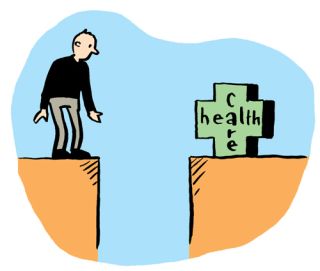Government must prioritise Primary Care in Budget 2024

People should be assured of the required treatment and care in times of illness or vulnerability. The standard of care is dependent to a great degree on the resources made available, which in turn are dependent on the expectations of society.
Access to Care
Ireland ranked 22nd out of 35 countries in 2018 in a report by Health Consumer Powerhouse published in 2019, but on the issue of accessibility, Ireland ranked the worst. That report notes that even if the (then) Irish waiting-list target of 18 months were reached, it would still be the worst waiting time situation in Europe. Irish hospitals are working near full capacity.
According to data from the National Treatment Purchase Fund there were 600,888 people waiting for outpatient’s treatment in May 2023, with 85,665 patients (including more than 10,000 children) waiting for 18 months or more for treatment. While the pandemic may have contributed to the numbers on the waiting lists in recent times, the numbers have been very high over many years, and well above 400,000 since 2015. The pandemic also limited access to care for people with health conditions not related to COVID-19 and unmet needs for medical care because of delayed or missed consultations are likely to lead to poorer health outcomes in the future. Government needs to urgently address these inequalities in the health service and implement a programme that provides access on the basis of need.
Transforming Acute and Community Care Services
Irish hospitals are working near full capacity. The occupancy rate for acute care beds is among the highest in OECD countries, and while having a high utilisation rate of hospital beds can be a sign of hospital efficiency, it can also mean that too many patients are treated at the secondary care level. In order to improve access to care, and to progress a shift to a model that prioritises primary and social care Social Justice Ireland is proposing that €600m of surplus windfall revenue is invested in Sláintecare infrastructure with a focus on Enhanced Community Care inBudget 2024.
The model of healthcare used in Ireland is defined by an over-emphasis on hospitals and acute care, rather than primary and social care being more central. Social Justice Ireland welcomes continued resourcing for the rollout of the 96 Community Healthcare Networks and the 30 Community Specialist Teams for Older People and Chronic Disease. However, significant sustained investment in General Practice, Primary Care & Community Based Services is required in conjunction with the implementation of the Regional Health Areas to ensure the transformation of the health service in line with Sláintecare.
To address the inequalities in our healthcare system and develop a system that is fit for purpose for all, in Budget 2024 Government needs to:
- Invest €100m in the expansion of the Enhanced Community Care Programme to alleviate pressure on acute services and ensure treatment is provided at the appropriate level of need.
- Invest a minimum of €100m annual in providing Universal Access to GP Care while expanding the number of GP and Practice Teams in line with the shift towards Primary Care & Community Based services envisaged in Sláintecare.
- Invest €50m in Community Nursing Facilities and rehabilitation beds.
Mental Health
According to the latest available data, the HSE Management Data Report for March 2021, 2,625 children and young people were awaiting supports from the Child and Adolescent Mental Health Service (CAMHS), with over one in ten waiting for 12 months of more. A mental health crisis is also likely to be a prevailing legacy from Covid-19.
In Budget 2024, Government must invest in the full implementation of the Sharing the Vision policy (including addressing staffing issues) at a cost of €35m and increase funding for programmes dealing with alcoholism and addictions at a cost of €72m.
Budget Choices 2024 is available to download here.
In addition, resources must be allocated to fully implement the Connecting for Life strategy to tackle suicide among young and marginalised people at a cost of €7m in Budget 2024.